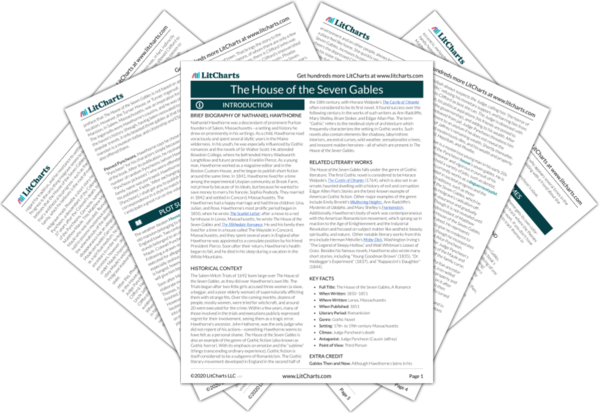As Clifford expounds on his idea of progress, he begins to speak more literally about the House of the Seven Gables. He sees houses as symbolic of human stagnation; this, inevitably, leads him to think of the specific house from which he has fled. In Clifford’s ecstatic mood, it’s unclear whether he thinks that the scene with Judge Pyncheon was a dream or something that really just happened. Dream and reality are mixed in his mind.
